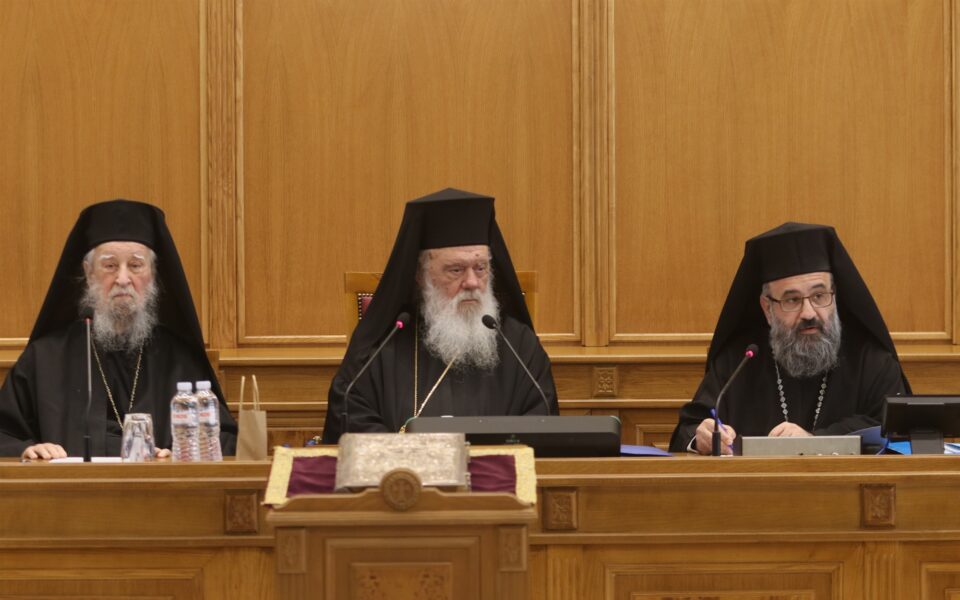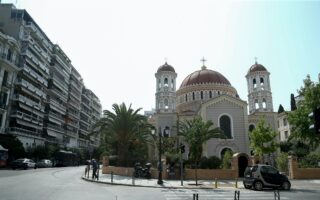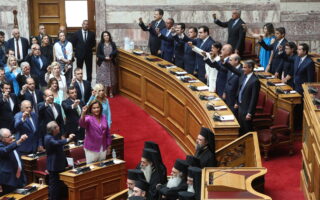The archbishop and the separation of church and state

Archbishop Ieronymos, the leader of the Orthodox Church of Greece, supposedly took a relatively soft stance on the issue of same-sex marriage. He is, after all, considered a follower of realpolitik and a balancer, in contrast to his predecessor, Christodoulos, who in 2001 had chosen the head-on confrontation with the state over the issue of the mention of religious belief on state identity cards. Had he followed in his footsteps, Ieronymos could have called for protests, organized a collection of signatures and requested the withdrawal of the bill. To his credit, he didn’t, and he kept a low profile.
But in two of his three major and critical interventions, he proved, once again, that no archbishop is willing to limit himself to his remit – the Church. All of them feel that they have an obligation to intervene in politics, and this is a problem. In his first intervention, he left open the possibility of a referendum on same-sex marriage, as if it is within his competence to propose an appeal to the popular vote. In his second, he raised the issue of denying baptism to the children of same-sex couples, which is rather difficult to implement according to the theologians’ point of view.
The archbishop requested a roll-call vote in Parliament over the same-sex marriage bill. What can this proposal serve? Apparently the intimidation of conservative MPs
Archbishop Elpidophoros of America explained it nicely: “From a church perspective, it is essential to have a godparent who is Orthodox and serves as the guarantor for the child’s Orthodox upbringing,” he said in an interview published in January. This alone is the condition for a baptism to proceed. Of course, this specific initiative on baptism was rather “painless,” since it would not create legal problems for the families anyway, as there is a naming process that does not depend on religious services.
The third intervention came on Wednesday, and was the most disturbing. The archbishop requested a roll-call vote in the Parliament, citing “democracy and the interests of the Greek people.” What can this proposal serve? Apparently the intimidation of conservative MPs who are thinking of voting in favor of the bill and the threat that they will not be able to visit their constituencies because they will be on a Christian blacklist.
It is a long-standing tactic of the Church to wield its influence to secure concessions from the state: from religious education, to the vote of parliamentarians and their promotion.
Gradually, however, its ability to co-shape political decisions is being limited. It is time to start a serious discussion about the separation of church and state.





